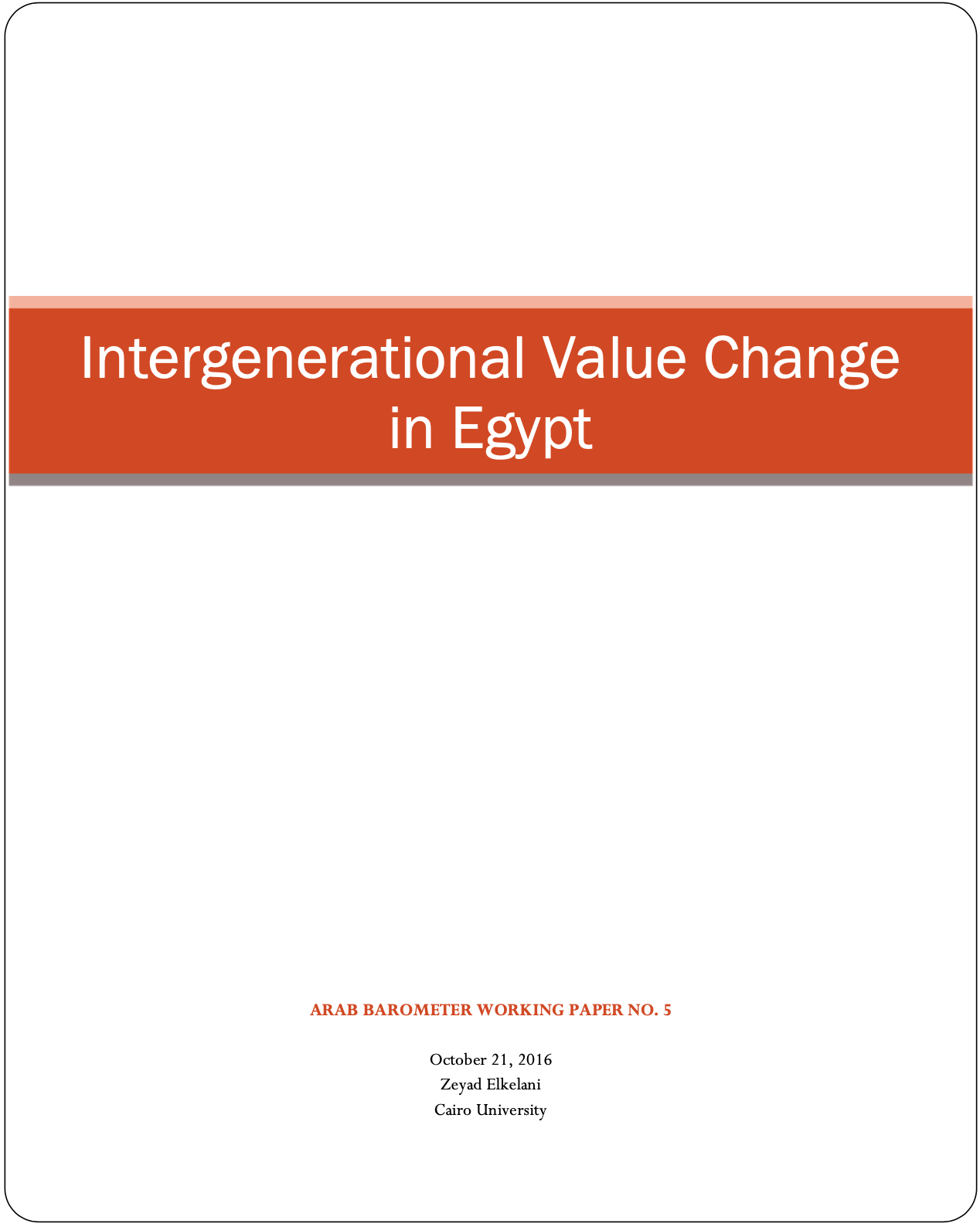Predicting Generational Values with Survey Data (Paper)
Abstract
This empirical study explores such claims by tracing a number of social and political indicators as parameters of generational value change in post-2011 Egypt. It employs a generational perspective in examining such values following Karl Mannheim’s definition of generations. Mannheim argued that a political generation is composed of a birth cohort sharing similar values through a multifaceted historical process of socialization. The theoretical framework guiding considerable portion of this study is Ronald Inglehart’s “intergenerational value change thesis.” Inglehart argues that there is an ongoing transnational value shift towards “postmaterialism,” which includes self-expression, quality of life and sense of belonging values with less emphasis on “materialist” values of traditionalism and security concerns. For Inglehart, younger generations are more likely to be postmaterialists given that their formative experiences are shaped through socioeconomic prosperity if compared to older cohorts.
In this study, I aim to address central question of whether youth values differ from those of their older peers relative to the events of 2011 in Egypt. In doing so; this research begins by examining the relevance of postmaterialist argument to the Middle East and Egyptian youth respectively. Next, this study maps out the political values of different cohorts in Egypt. Most of studies of youth in Egypt and the Middle East are yet historical or anecdotal. However, in this paper, I examine secondary data from the World Values Survey and the Arab Barometer collected between 2001 and 2013 in order to evaluate the unique effects of our proposed forecasters.
On the whole, I find very limited support for Inglehart’s thesis in explaining the Egyptian case. Although the younger generation shows a greater propensity to be postmaterialist, nevertheless the relative salience of such values is low in Egypt. Hence, I call for reconsidering Inglehart’s model in developing nations. Moreover, I find evidence for cohort value variance in regard to portion of political values. However, part of these differences relate to intra-cohort aging effects. Thus, I cast doubt on the uniqueness of the claim of the uniqueness of the values of the youth cohort and call for refining this assertion. Additionally, I find limited evidence in support of the claim that young Egyptians exhibit more liberal values. Instead, I find considerable support for youth fragmentation in Egypt. Much of the division among this cohort is explained by demographic factors. Overall, this quantitative study provides the basis for future qualitative studies that further investigate proposed criticisms and doubts on the existing claims related to the distinctiveness of the youth cohort in Egypt that participated in the 2011 uprising.

For the full text, click here.